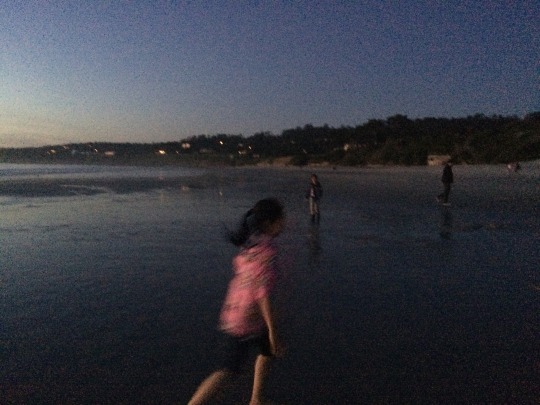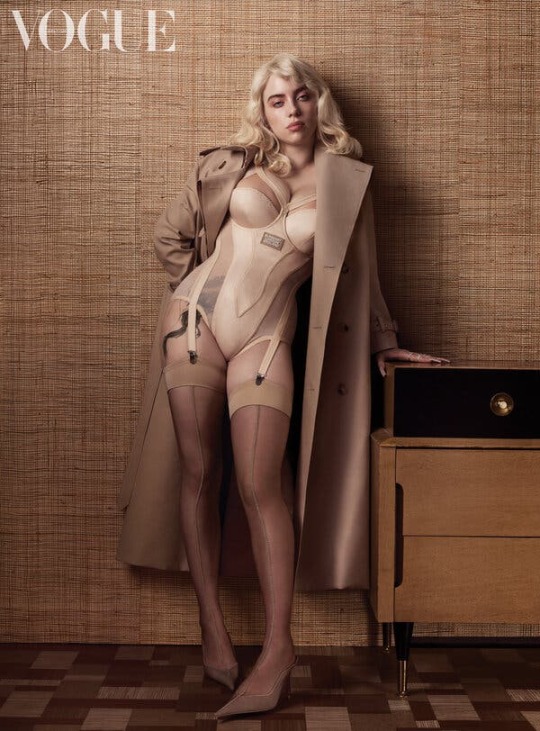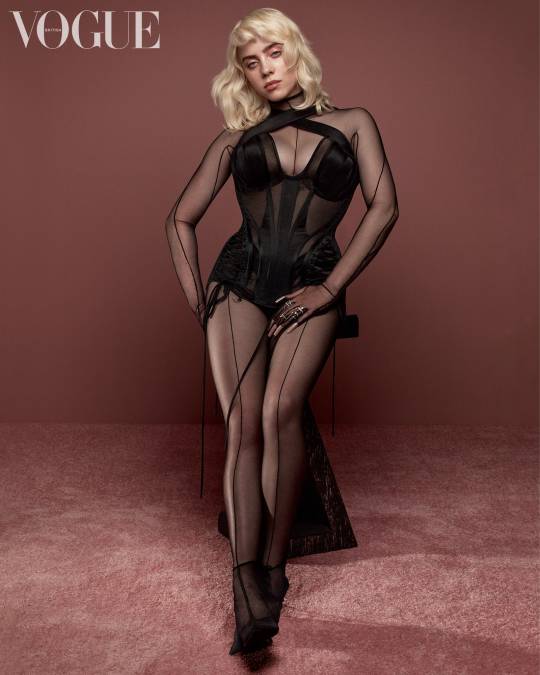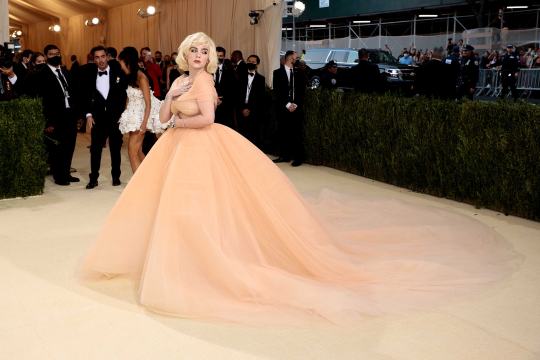Text
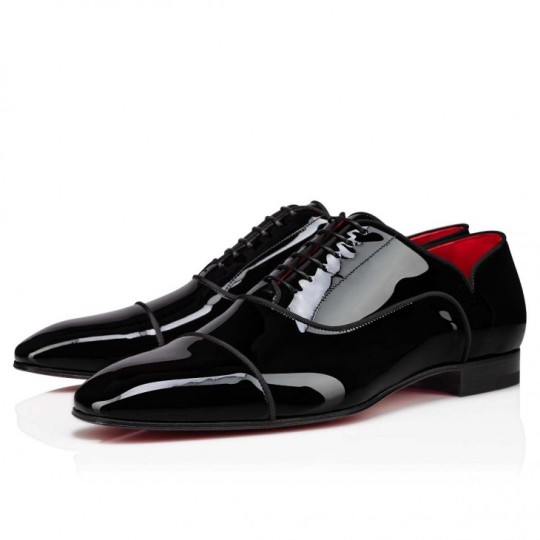

Greggy Chick, Christian Louboutin, $1,045.00.
#fashion#crying and begging for a pair of oxford shoes#they're so vamp lord chic#the gender euphoria this would give me i swear#someone hire me for a thousand-dollar hit
0 notes
Text

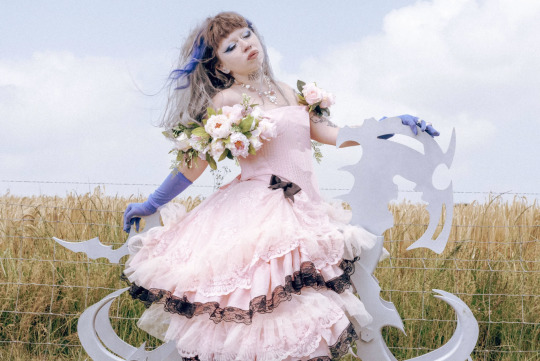
“I was around 14 when that happened,” Bean begins. “I was being shipped back and forth across the world and obviously exploited quite badly, sexually, and isolated from a lot of friends and family. I was trapped in this one bedroom in the Bronx, not really knowing what was going on.”
As a result, they turned to drugs to cope. “A lot of my drug usage at a young age came from that repressed memory and blocked that trauma,” they explain. “Your brain blocks out trauma and I just started remembering things that I didn't even know happened. And so that was a lot for me to overcome mentally.”
Just years later, and still in the grip of addiction, Bean would simultaneously rise to fame as one of the most exciting names in alternative music.
JAZMIN BEAN: SURVIVOR, DIY Magazine
2 notes
·
View notes
Text
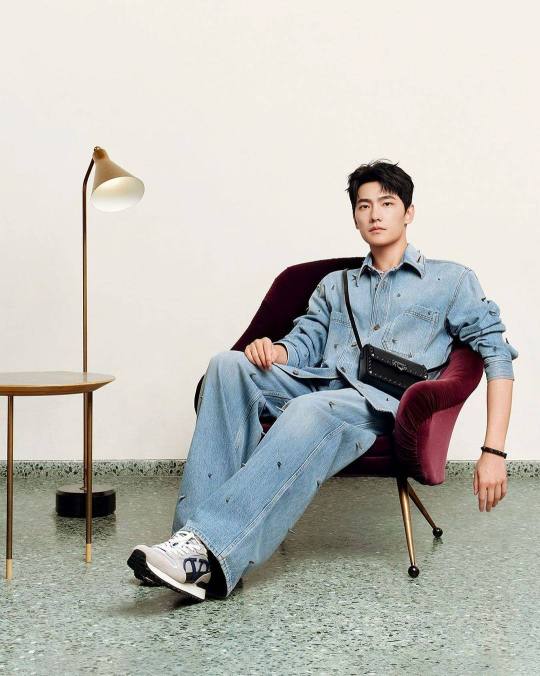

#杨洋#yang yang#世花#when I first saw him in 全职高手 the king's avatar my first impulse was to fuck him over a bench
0 notes
Text
Holy Sonnet XIV
By John Donne
Batter my heart, three-person'd God, for you
As yet but knock, breathe, shine, and seek to mend;
That I may rise and stand, o'erthrow me, and bend
Your force to break, blow, burn, and make me new.
I, like an usurp'd town to another due,
Labor to admit you, but oh, to no end;
Reason, your viceroy in me, me should defend,
But is captiv'd, and proves weak or untrue.
Yet dearly I love you, and would be lov'd fain,
But am betroth'd unto your enemy;
Divorce me, untie or break that knot again,
Take me to you, imprison me, for I,
Except you enthrall me, never shall be free,
Nor ever chaste, except you ravish me.
0 notes
Text
The Night Dances
By Sylvia Plath
A smile fell in the grass.
Irretrievable!
And how will your night dances
Lose themselves. In mathematics?
Such pure leaps and spirals —
Surely they travel
The world forever, I shall not entirely
Sit emptied of beauties, the gift
Of your small breath, the drenched grass
Smell of your sleeps, lilies, lilies.
Their flesh bears no relation.
Cold folds of ego, the calla,
And the tiger, embellishing itself —
Spots, and a spread of hot petals.
The comets
Have such a space to cross,
Such coldness, forgetfulness.
So your gestures flake off —The Night Dances
Warm and human, then their pink light
Bleeding and peeling
Through the black amnesias of heaven.
Why am I given
These lamps, these planets
Falling like blessings, like flakes
Six sided, white
On my eyes, my lips, my hair
Touching and melting.
Nowhere.
0 notes
Text
Three Travelers Watch a Sunrise
Wallace Stevens
The characters are three Chinese, two negroes and a girl.
The scene represents a forest of heavy trees on a hilltop in eastern Pennsylvania. To the right is a road, obscured by bushes. It is about four o'clock of a morning in August, at the present time.
When the curtain rises, the stage is dark. The limb of a tree creaks. A negro carrying a lantern passes along the road. The sound is repeated. The negro comes through the bushes, raises his lantern and looks through the trees. Discerning a dark object among the branches, he shrinks back, crosses stage, and goes out through the wood to the left.
A second negro comes through the bushes to the right. He carries two large baskets, which he places on the ground just inside of the bushes. Enter three Chinese, one of whom carries a lantern. They pause on the road.
Second Chinese. All you need,
To find poetry,
Is to look for it with a lantern. [The Chinese laugh.]
Third Chinese. I could find it without,
On an August night,
If I saw no more
Than the dew on the barns.
[The Second Negro makes a sound to attract their attention. The three Chinese come through the bushes. The first is short, fat, quizzical, and of middle age. The second is of middle height, thin and turning gray; a man of sense and sympathy. The third is a young man, intent, detached. They wear European clothes.]
Second Chinese. [Glancing at the baskets.]
Dew is water to see,
Not water to drink:
We have forgotten water to drink.
Yet I am content
Just to see sunrise again.
I have not seen it
Since the day we left Pekin.
It filled my doorway,
Like whispering women.
First Chinese. And I have never seen it.
If we have no water,
Do find a melon for me In the baskets.
[The Second Negro, who has been opening the baskets, hands the First Chinese a melon.]
First Chinese. Is there no spring?
[The negro takes a water bottle of red porcelain from one of the baskets and places it near the Third Chinese.)
Second Chinese. [To Third Chinese.] Your porcelain
water bottle.
[One of the baskets contains costumes of silk, red, blue and green. During the following speeches, the Chinese put on these costumes, with the assistance of the negro, and seat themselves on the ground.]
Third Chinese. This fetches its own water.
[Takes the bottle and places it on the ground in the center of the stage.]
I drink from it, dry as it is,
As you from maxims, [To Second Chinese.]
Or you from melons. [To First Chinese.]
First Chinese. Not as I, from melons.
Be sure of that.
Second Chinese. Well, it is true of maxims.
[He finds a book in the pocket of his costume, and reads from it.]
"The court had known poverty and wretchedness;
humanity had invaded its seclusion, with its
suffering and its pity."
[The limb of the tree creaks.]
Yes: it is true of maxims,
Just as it is true of poets,
Or wise men, or nobles,
Or jade.
First Chinese. Drink from wise men? From jade?
Is there no spring?
[Turning to the negro, who has taken a jug from one of the baskets.]
Fill it and return.
[The negro removes a large candle from one of the baskets and hands it to the First Chinese; then takes the jug and the lantern and enters the trees to the left. The First Chinese lights the candle and places it on the ground near the water bottle.]
Third Chinese. There is a seclusion of porcelain
That humanity never invades.
First Chinese. [With sarcasm.] Porcelain!
Third Chinese. It is like the seclusion of sunrise,
Before it shines on any house.
First Chinese. Pooh!
Second Chinese. This candle is the sun;
This bottle is earth:
It is an illustration
Used by generations of hermits.
The point of difference from reality
Is this:
That, in this illustration,
The earth remains of one color—
It remains red,
It remains what it is.
But when the sun shines on the earth,
In reality
It does not shine on a thing that remains
What it was yesterday.
The sun rises
On whatever the earth happens to be.
Third Chinese. And there are indeterminate moments
Before it rises,
Like this, [With a backward gesture.]
Before one can tell
What the bottle is going to be
Porcelain, Venetian glass,
Egyptian . . .
Well, there are moments
When the candle, sputtering up,
Finds itself in seclusion, [He raises the candle in the air.]
And shines, perhaps, for the beauty of shining.
That is the seclusion of sunrise
Before it shines on any house. [Replacing the candle.]
First Chinese. [Wagging his head.] As abstract as porcelain.
Second Chinese. Such seclusion knows beauty
As the court knew it.
The court woke
In its windless pavilions,
And gazed on chosen mornings,
As it gazed
On chosen porcelain.
What the court saw was always of the same color,
And well shaped,
And seen in a clear light. [He points to the candle.]
It never woke to see,
And never knew,
The flawed jars,
The weak colors,
The contorted glass.
It never knew
The poor lights. [He opens his book significantly.]
When the court knew beauty only,
And in seclusion,
It had neither love nor wisdom.
These came through poverty
And wretchedness,
Through suffering and pity. [He pauses.]
It is the invasion of humanity
That counts.
[The limb of the tree creaks. The First Chinese turns, for a moment, in the direction of the sound.]
First Chinese. [Thoughtfully.] The light of the most
tranquil candle
Would shudder on a bloody salver.
Second Chinese. [With a gesture of disregard.] It is the invasion
That counts.
If it be supposed that we are three figures
Painted on porcelain
As we sit here,
That we are painted on this very bottle,
The hermit of the place,
Holding this candle to us,
Would wonder;
But if it be supposed
That we are painted as warriors,
The candle would tremble in his hands;
Or if it be supposed, for example,
That we are painted as three dead men,
He could not see the steadiest light,
For sorrow.
It would be true
If an emperor himself
Held the candle.
He would forget the porcelain
For the figures painted on it.
Third Chinese. [Shrugging his shoulders.] Let the candle shine for the beauty of shining.
I dislike the invasion
And long for the windless pavilions.
And yet it may be true
That nothing is beautiful
Except with reference to ourselves,
Nor ugly,
Nor high, [Pointing to the sky.]
Nor low. [Pointing to the candle.]
No: not even sunrise.
Can you play of this [Mockingly to First Chinese.]
For us? [He stands up.]
First Chinese. [Hesitatingly.] I have a song
Called Mistress and Maid.
It is of no interest to hermits
Or emperors,
Yet it has a bearing;
For if we affect sunrise,
We affect all things.
Third Chinese. It is a pity it is of women.
Sing it.
[He takes an instrument from one of the baskets and hands it to the First Chinese, who sings the following song, accompanying himself, somewhat tunelessly, on the instrument. The Third Chinese takes various things out of the basket for tea. He arranges fruit. The First Chinese watches him while he plays. The Second Chinese gazes at the ground. The sky shows the first signs of morning.]
First Chinese. The mistress says, in a harsh voice,
"He will be thinking in strange countries
Of the white stones near my door, And I—I am tired of him."
She says sharply, to her maid,
"Sing to yourself no more."
Then the maid says, to herself,
"He will be thinking in strange countries
Of the white stones near her door;
But it is me he will see
At the window, as before.
"He will be thinking in strange countries
Of the green gown I wore.
He was saying good-by to her."
The maid drops her eyes and says to her mistress,
"I shall sing to myself no more."
Third Chinese. That affects the white stones,
To be sure. [They laugh.]
First Chinese. And it affects the green gown.
Second Chinese. Here comes our black man.
[The Second Negro returns, somewhat agitated, with water but without his lantern. He hands the jug to the Third Chinese. The First Chinese from time to time strikes the instrument. The Third Chinese, who faces the left, peers in the direction from which the negro has come.]
Third Chinese. You have left your lantern behind you.
It shines, among the trees,
Like evening Venus in a cloud-top.
[The Second Negro grins but makes no explanation. He seats himself behind the Chinese to the right.]
First Chinese. Or like a ripe strawberry
Among its leaves. [They laugh.]
I heard tonight
That they are searching the hill
For an Italian.
He disappeared with his neighbor's daughter.
Second Chinese. [Confidingly.] I am sure you heard
The first eloping footfall,
And the drum Of pursuing feet.
First Chinese. [Amusedly.] It was not an elopement.
The young gentleman was seen
To climb the hill,
In the manner of a tragedian
Who sweats.
Such things happen in the evening.
He was
Un misérable.
Second Chinese. Reach the lady quickly.
[The First Chinese strikes the instrument twice as a prelude to his narrative.]
First Chinese. There are as many points of view
From which to regard her
As there are sides to a round bottle. [Pointing to the water bottle.]
She was represented to me
As beautiful.
[They laugh. The First Chinese strikes the instrument, and looks at the Third Chinese, who yawns.]
First Chinese. [Reciting.] She was as beautiful as a
porcelain water bottle.
[He strikes the instrument in an insinuating manner.]
First Chinese. She was represented to me
As young.
Therefore my song should go
Of the color of blood.
[He strikes the instrument. The limb of the tree creaks. The First Chinese notices it and puts his hand on the knee of the Second Chinese, who is seated between him and the Third Chinese, to call attention to the sound. They are all seated so that they do not face the spot from which the sound comes. A dark object, hanging to the limb of the tree, becomes a dim silhouette. The sky grows constantly brighter. No color is to be seen until the end of the play.]
Second Chinese. [To First Chinese.] It is only a tree
Creaking in the night wind.
Third Chinese. [Shrugging his shoulders.] There would be no creaking
In the windless pavilions.
First Chinese. [Resuming.] So far the lady of the present ballad
Would have been studied
By the hermit and his candle
With much philosophy;
And possibly the emperor would have cried,
"More light!"
But it is a way with ballads
That the more pleasing they are
The worse end they come to;
For here it was also represented
That the lady was poor—
The hermit's candle would have thrown
Alarming shadows,
And the emperor would have held
The porcelain in one hand . . .
She was represented as clinging
To 'that sweaty tragedian,
And weeping up the hill.
Second Chinese. [With a grimace.] It does not sound like an elopement.
First Chinese. It is a doleful ballad,
Fit for keyholes.
Third Chinese. Shall we hear more?
Second Chinese. Why not?
Third Chinese. We came for isolation,
To rest in sunrise.
Second Chinese. [Raising his book slightly.] But this will be a part of sunrise,
And can you tell how it will end?—
Venetian,
Egyptian,
Contorted glass . . .
[He turns toward the light in the sky to the right, darkening the candle with his hands.]
In the meantime, the candle shines, [Indicating the sunrise.]
As you say, [To the Third Chinese.]
For the beauty of shining.
First Chinese. [Sympathetically.] Oh! it will end badly.
The lady's father
Came clapping behind them
To the foot of the hill.
He came crying,
"Anna, Anna, Anna!” [Imitating.]
He was alone without her,
Just as the young gentleman
Was alone without her:
Three beggars, you see,
Begging for one another.
[The First Negro, carrying two lanterns, approaches cautiously through the trees. At the sight of him, the Second Negro, seated near the Chinese, jumps to his feet. The Chinese get up in alarm. The Second Negro goes around the Chinese toward the First Negro. All see the body of a man hanging to the limb of the tree. They gather together, keeping their eyes fixed on it. The First Negro comes out of the trees and places the lanterns on the ground. He looks at the group and then at the body.]
First Chinese. [Moved.] The young gentleman of the ballad.
Third Chinese. [Slowly, approaching the body.] And the end of the ballad.
Take away the bushes.
[The negroes commence to pull away the bushes.]
Second Chinese. Death, the hermit,
Needs no candle
In his hermitage.
[The Second Chinese snuffs out the candle. The First Chinese buts out the lanterns. As the bushes are pulled away, the figure of a girl, sitting half stupefied under the tree, suddenly becomes apparent to the Second Chinese and then to the Third Chinese. They step back. The negroes move to the left. When the First Chinese sees the girl, the instrument slips from his hands and falls noisily to the ground. The girl stirs.]
Second Chinese. [To the girl.] Is that you, Anna?
[The girl starts. She raises her head, looks around slowly, leaps to her feet and screams.]
Second Chinese. [Gently.] Is that you, Anna?
[She turns quickly toward the body, looks at it fixedly and totters up the stage.]
Anna. [Bitterly.] Go.
Tell my father:
He is dead.
[The Second and Third Chinese support her. The First Negro whispers to the First Chinese, then takes the lanterns and goes through the opening to the road, where he disappears in the direction of the valley.]
First Chinese. [To Second Negro.] Bring us fresh water
From the spring.
[The Second Negro takes the jug and enters the trees to the left. The girl comes gradually to herself. She looks at the Chinese and at the sky. She turns her back toward the body, shuddering, and does, not look at it again.]
Anna. It will soon be sunrise.
Second Chinese. One candle replaces
Another.
[The First Chinese walks toward the bushes to the right. He stands by the roadside, as if to attract the attention of anyone passing.]
Anna. [Simply.] When he was in his fields, I worked in ours-Wore purple to see;
And when I was in his garden I wore gold ear-rings.
Last evening I met him on the road.
He asked me to walk with him
To the top of the hill.
I felt the evil,
But he wanted nothing.
He hanged himself in front of me.
[She looks for support. The Second and Third Chinese help her toward the road. At the roadside, the First Chinese takes the place of the Third Chinese. The girl and the twr Chinese go through the bushes and disappear down the road. The stage is empty except for the Third Chinese. He walks slowly across the stage, pushing the instrument out of his way with his foot. It reverberates. He looks at the water bottle.]
Third Chinese. Of the color of blood . . .
Seclusion of porcelain . . .
Seclusion of sunrise . .
[He picks up the water bottle.]
The candle of the sun
Will shine soon
On this hermit earth. [Indicating the bottle.]
It will shine soon
Upon the trees,
And find a new thing [Indicating the body.]
Painted on this porcelain, [Indicating the trees.]
But not on this. [Indicating the bottle.]
[He places the bottle on the ground. A narrow cloud over the valley becomes red. He turns toward it, then walks to the right. He finds the book of the Second Chinese lying on the ground, picks it up and turns over the leaves.]
Red is not only
The color of blood, Or [Indicating the body.]
Of a man's eyes, Or [Pointedly.]
Of a girl's.
And as the red of the sun Is one thing to me
And one thing to another,
So it is the green of one tree [Indicating.]
And the green of another,
Which without it would all be black.
Sunrise is multiplied,
Like the earth on which it shines,
By the eyes that open on it,
Even dead eyes,
As red is multiplied by the leaves of trees.
[Toward the end of this speech, the Second Negro comes from the trees to the left, without being seen. The Third Chinese, whose back is turned toward the negro, walks through the bushes to the right and disappears on the road. The negro looks around at the objects on the stage. He sees the instrument, seats himself before it and strikes it several times, listening to the sound. One or two birds twitter. A voice, urging a horse, is heard at a distance. There is the crack of a whip. The negro stands up, walks to the right and remains at the side of the road. The curtain falls slowly.]
0 notes
Text
The Plain Sense of Things
By Wallace Stevens
After the leaves have fallen, we return
To a plain sense of things. It is as if
We had come to an end of the imagination,
Inanimate in an inert savoir.
It is difficult even to choose the adjective
For this blank cold, this sadness without cause.
The great structure has become a minor house.
No turban walks across the lessened floors.
The greenhouse never so badly needed paint.
The chimney is fifty years old and slants to one side.
A fantastic effort has failed, a repetition
In a repetitiousness of men and flies.
Yet the absence of the imagination had
Itself to be imagined. The great pond,
The plain sense of it, without reflections, leaves,
Mud, water like dirty glass, expressing silence
Of a sort, silence of a rat come out to see,
The great pond and its waste of the lilies, all this
Had to be imagined as an inevitable knowledge,
Required, as a necessity requires.
2 notes
·
View notes
Text
The Man with the Blue Guitar
Wallace Stevens
I
The man bent over his guitar,
A shearsman of sorts. The day was green.
They said, "You have a blue guitar,
You do not play things as they are."
The man replied, "Things as they are
Are changed upon the blue guitar."
And they said then, "But play, you must,
A tune beyond us, yet ourselves,
A tune upon the blue guitar
Of things exactly as they are."
II
I cannot bring a world quite round,
Although I patch it as I can.
I sing a hero's head, large eye
And bearded bronze, but not a man,
Although I patch him as I can
And reach through him almost to man.
If to serenade almost to man
Is to miss, by that, things as they are,
Say it is the serenade
Of a man that plays a blue guitar.
III
Ah, but to play man number one,
To drive the dagger in his heart,
To lay his brain upon the board
And pick the acrid colors out,
To nail his thought across the door,
Its wings spread wide to rain and snow,
To strike his living hi and ho,
To tick it, tock it, turn it true,
To bang from it a savage blue,
Jangling the metal of the strings.
IV
So that's life, then: things as they are?
It picks its way on the blue guitar.
A million people on one string?
And all their manner in the thing,
And all their manner, right and wrong,
And all their manner, weak and strong?
The feelings crazily, craftily call,
Like a buzzing of flies in autumn air,
And that's life, then: things as they are,
This buzzing of the blue guitar.
V
Do not speak to us of the greatness of poetry,
Of the torches wisping in the underground,
Of the structure of vaults upon a point of light.
There are no shadows in our sun,
Day is desire and night is sleep.
There are no shadows anywhere.
The earth, for us, is flat and bare.
There are no shadows. Poetry
Exceeding music must take the place
Of empty heaven and its hymns,
Ourselves in poetry must take their place,
Even in the chattering of your guitar.
VI
A tune beyond us as we are,
Yet nothing changed by the blue guitar;
Ourselves in the tune as if in space,
Yet nothing changed, except the place
Of things as they are and only the place
As you play them, on the blue guitar,
Placed, so, beyond the compass of change,
Perceived in a final atmosphere;
For a moment final, in the way
The thinking of art seems final when
The thinking of god is smoky dew.
The tune is space. The blue guitar
Becomes the place of things as they are,
A composing of senses of the guitar.
VII
It is the sun that shares our works.
The moon shares nothing. It is a sea.
When shall I come to say of the sun,
It is a sea; it shares nothing;
The sun no longer shares our works
And the earth is alive with creeping men,
Mechanical beetles never quite warm?
And shall I then stand in the sun, as now
I stand in the moon, and call it good,
The immaculate, the merciful good,
Detached from us, from things as they are?
Not to be part of the sun? To stand
Remote and call it merciful?
The strings are cold on the blue guitar.
VIII
The vivid, florid, turgid sky,
The drenching thunder rolling by,
The morning deluged still by night,
The clouds tumultuously bright
And the feeling heavy in cold chords
Struggling toward impassioned choirs,
Crying among the clouds, enraged
By gold antagonists in air—
I know my lazy, leaden twang
Is like the reason in a storm;
And yet it brings the storm to bear.
I twang it out and leave it there.
IX
And the color, the overcast blue
Of the air, in which the blue guitar
Is a form, described but difficult,
And I am merely a shadow hunched
Above the arrowy, still strings,
The maker of a thing yet to be made;
The color like a thought that grows
Out of a mood, the tragic robe
Of the actor, half his gesture, half
His speech, the dress of his meaning, silk
Sodden with his melancholy words,
The weather of his stage, himself.
X
Raise reddest columns. Toll a bell
And clap the hollows full of tin.
Throw papers in the streets, the wills
Of the dead, majestic in their seals.
And the beautiful trombones—behold
The approach of him whom none believes,
Whom all believe that all believe,
A pagan in a varnished care.
Roll a drum upon the blue guitar.
Lean from the steeple. Cry aloud,
"Here am I, my adversary, that
Confront you, hoo-ing the slick trombones,
Yet with a petty misery
At heart, a petty misery,
Ever the prelude to your end,
The touch that topples men and rock.”
XI
Slowly the ivy on the stones
Becomes the stones. Women become
The cities, children become the fields
And men in waves become the sea.
It is the chord that falsifies.
The sea returns upon the men,
The fields entrap the children, brick
Is a weed and all the flies are caught,
Wingless and withered, but living alive.
The discord merely magnified.
Deeper within the belly's dark
Of time, time grows upon the rock.
XII
Tom-tom, c'est moi. The blue guitar
And I are one. The orchestra
Fills the high hall with shuffling men
High as the hall. The whirling noise
Of a multitude dwindles, all said,
To his breath that lies awake at night.
I know that timid breathing. Where
Do I begin and end? And where,
As I strum the thing, do I pick up
That which momentously declares
Itself not to be I and yet
Must be. It could be nothing else.
XIII
The pale intrusions into blue
Are corrupting pallors…ay di mi,
Blue buds of pitchy blooms. Be content —
Expansions, diffusions — content to be
The unspotted imbecile revery,
The heraldic center of the world
Of blue, blue sleek with a hundred chins,
The amorist Adjective aflame…
XIV
First one beam, then another, then
A thousand are radiant in the sky.
Each is both star and orb; and day
Is the riches of their atmosphere.
The sea appends its tattery hues.
The shores are banks of muffling mist.
One says a German chandelier —
A candle is enough to light the world.
It makes it clear. Even at noon
It glistens in essential dark.
At night, it lights the fruit and wine,
The book and bread, things as they are,
In a chiaroscuro where
One sits and plays the blue guitar.
XV
Is this picture of Picasso's, this "hoard
Of destructions", a picture of ourselves,
Now, an image of our society?
Do I sit, deformed, a naked egg,
Catching at Good-bye, harvest moon,
Without seeing the harvest or the moon?
Things as they are have been destroyed.
Have I? Am I a man that is dead
At a table on which the food is cold?
Is my thought a memory, not alive?
Is the spot on the floor, there, wine or blood
And whichever it may be, is it mine?
XVI
The earth is not earth but a stone,
Not the mother that held men as they fell
But stone, but like a stone, no: not
The mother, but an oppressor, but like
An oppressor that grudges them their death,
As it grudges the living that they live.
To live in war, to live at war,
To chop the sullen psaltery,
To improve the sewers in Jerusalem,
To electrify the nimbuses—
Place honey on the altars and die,
You lovers that are bitter at heart.
XVII
The person has a mould. But not
Its animal. The angelic ones
Speak of the soul, the mind. It is
An animal. The blue guitar—
On that its claws propound, its fangs
Articulate its desert days.
The blue guitar a mould? That shell?
Well, after all, the north wind blows
A horn, on which its victory
Is a worm composing on a straw.
XVIII
A dream (to call it a dream) in which
I can believe, in face of the object,
A dream no longer a dream, a thing,
Of things as they are, as the blue guitar
After long strumming on certain nights
Gives the touch of the senses, not of the hand,
But the very senses as they touch
The wind-gloss. Or as daylight comes,
Like light in a mirroring of cliffs,
Rising upward from a sea of ex.
XIX
That I may reduce the monster to
Myself, and then may be myself
In face of the monster, be more than part
Of it, more than the monstrous player of
One of its monstrous lutes, not be
Alone, but reduce the monster and be,
Two things, the two together as one,
And play of the monster and of myself,
Or better not of myself at all,
But of that as its intelligence,
Being the lion in the lute
Before the lion locked in stone.
XX
What is there in life except one's ideas.
Good air, good friend, what is there in life?
Is it ideas that I believe?
Good air, my only friend, believe,
Believe would be a brother full
Of love, believe would be a friend
Friendlier than my only friend,
Good air. Poor pale, poor pale guitar…
XXI
A substitute for all the gods:
This self, not that gold self aloft,
Alone, one's shadow magnified,
Lord of the body, looking down,
As now and called most high,
The shadow of Chocorua
In an immenser heaven, aloft,
Alone, lord of the land and lord
Of the men that live in the land, high lord.
One's self and the mountains of one's land,
Without shadows, without magnificence,
The flesh, the bone, the dirt, the stone.
XXII
Poetry is the subject of the poem,
From this the poem issues and
To this returns. Between the two,
Between issue and return, there is
An absence in reality,
Things as they are. Or so we say.
But are these separate? Is it
An absence for the poem, which acquires
Its true appearances there, sun's green,
Cloud's red, earth feeling, sky that thinks?
From these it takes. Perhaps it gives,
In the universal intercourse.
XXIII
A few final solutions, like a duet
With the undertaker: a voice in the clouds,
Another on earth, the one a voice
Of ether, the other smelling of drink,
The voice of ether prevailing, the swell
Of the undertaker's song in the snow
Apostrophizing wreaths, the voice
In the clouds serene and final, next
The grunted breath scene and final,
The imagined and the real, thought
And the truth, Dichtung und Wahrheit, all
Confusion solved, as in a refrain
One keeps on playing year by year,
Concerning the nature of things as they are.
XXIV
A poem like a missal found
In the mud, a missal for that young man,
That scholar hungriest for that book,
The very book, or, less, a page
Or, at the least, a phrase, that phrase,
A hawk of life, that latined phrase:
To know; a missal for brooding-sight.
To meet that hawk's eye and to flinch
Not at the eye but at the joy of it.
I play. But this is what I think.
XXV
He held the world upon his nose
And this-a-way he gave a fling.
His robes and symbols, ai-yi-yi —
And that-a-way he twirled the thing.
Sombre as fir-trees, liquid cats
Moved in the grass without a sound.
They did not know the grass went round.
The cats had cats and the grass turned gray
And the world had worlds, ai, this-a-way:
The grass turned green and the grass turned gray.
And the nose is eternal, that-a-way.
Things as they were, things as they are,
Things as they will be by and by…
A fat thumb beats out ai-yi-yi.
XXVI
The world washed in his imagination,
The world was a shore, whether sound or form
Or light, the relic of farewells,
Rock, of valedictory echoings,
To which his imagination returned,
From which it sped, a bar in space,
Sand heaped in the clouds, giant that fought
Against the murderous alphabet:
The swarm of thoughts, the swarm of dreams
Of inaccessible Utopia.
A mountainous music always seemed
To be falling and to be passing away.
XXVII
It is the sea that whitens the roof.
The sea drifts through the winter air.
It is the sea that the north wind makes.
The sea is in the falling snow.
This gloom is the darkness of the sea.
Geographers and philosophers,
Regard. But for that salty cup,
But for the icicles on the eaves —
The sea is a form of ridicule.
The iceberg settings satirize
The demon that cannot be himself,
That tours to shift the shifting scene.
XXVIII
I am a native in this world
And think in it as a native thinks,
Gesu, not native of a mind
Thinking the thoughts I call my own,
Native, a native in the world
And like a native think in it.
It could not be a mind, the wave
In which the watery grasses flow
And yet are fixed as a photograph,
The wind in which the dead leaves blow.
Here I inhale profounder strength
And as I am, I speak and move
And things are as I think they are
And say they are on the blue guitar.
XXIX
In the cathedral, I sat there, and read,
Alone, a lean Review and said,
"These degustations in the vaults
Oppose the past and the festival.
What is beyond the cathedral, outside,
Balances with nuptial song.
So it is to sit and to balance things
To and to and to the point of still,
To say of one mask it is like,
To say of another it is like,
To know that the balance does not quite rest,
That the mask is strange, however like."
The shapes are wrong and the sounds are false.
The bells are the bellowing of bulls.
Yet Franciscan don was never more
Himself than in this fertile glass.
XXX
From this I shall evolve a man.
This is his essence: the old fantoche
Hanging his shawl upon the wind,
Like something on the stage, puffed out,
His strutting studied through centuries.
At last, in spite of his manner, his eye
A-cock at the cross-piece on a pole
Supporting heavy cables, slung
Through Oxidia, banal suburb,
One-half of all its installments paid.
Dew-dapper clapper-traps, blazing
From crusty stacks above machines.
Ecce, Oxidia is the seed
Dropped out of this amber-ember pod,
Oxidia is the soot of fire,
Oxidia is Olympia.
XXXI
How long and late the pheasant sleeps…
The employer and employee contend,
Combat, compose their droll affair.
The bubbling sun will bubble up,
Spring sparkle and the cock-bird shriek.
The employer and employee will hear
And continue their affair. The shriek
Will rack the thickets. There is no place,
Here, for the lark fixed in the mind,
In the museum of the sky. The cock
Will claw sleep. Mourning is not sun,
It is this posture of the nerves,
As if a blunted player clutched
The nuances of the blue guitar.
It must be this rhapsody or none,
The rhapsody of things as they are.
XXXII
Throw away the lights, the definitions,
And say of what you see in the dark
That it is this or that it is that,
But do not use the rotted names.
How should you walk in that space and know
Nothing of the madness of space,
Nothing of its jocular procreations?
Throw the lights away. Nothing must stand
Between you and the shapes you take
When the crust of shape has been destroyed.
You as you are? You are yourself.
The blue guitar surprises you.
XXXIII
That generation's dream, aviled
In the mud, in Monday's dirty light,
That's it, the only dream they knew,
Time in its final block, not time
To come, a wrangling of two dreams.
Here is the bread of time to come,
Here is its actual stone. The bread
Will be our bread, the stone will be
Our bed and we shall sleep by night.
We shall forget by day, except
The moments when we choose to play
The imagined pine, the imagined jay.
3 notes
·
View notes
Text
Carlos among the Candles
Wallace Stevens
The stage is indistinguishable when the curtain rises. The room represented is semi-circular. In the center, at the back, is a large round window, covered by long curtains. There is a door at the right and one at the left. Farther forward on the stage there are two long, low, wooden tables, one at the right and one at the left. The walls and the curtains over the window-are of a dark reddish-purple, with a dim pattern of antique gold.
Carlos is an eccentric pedant of about forty. He is dressed in black. He wears close-fitting breeches and a close-fitting, tightly-buttoned, short coat with long tails. His hair is rumpled. He leaps upon the stage through the door at the right. Nothing is visible through the door. He has a long thin white lighted taper, which he holds high above his head as he moves, fantastically, over the stage, examining the room in which he finds himself.
When he has completed examining the room, he tip-toes to the table at the right and lights a single candle at the edge of the table nearest the front of the stage. It is a thin black candle, not less than two feet high. All the other candles are like it. They give very little light.
He speaks in a lively manner, but is over-nice in sounding his words.
As the candle begins to burn, he steps back, regarding it. Nothing else is visible on the table.
Carlos:
How the solitude of this candle penetrates me! I light a candle in the darkness. It fills the darkness with solitude, which becomes my own. I become a part of the solitude of the candle . . . of the darkness flowing over the house and into it . . . This room . . . and the profound room outside. . . Just to go through a door, and the change . . . the becoming a part, instantly, of that profounder room . . . and equally to feel it communicating, with the same persistency, its own mood, its own influence . . . and there, too, to feel the lesser influences of the shapes of things, of exhalations, sounds . . . to feel the mood of the candle vanishing and the mood of the special night coming to take its place . . .
[He sighs. After a pause he pirouettes, and then continues.]
I was always affected by the grand style. And yet I have been thinking neither of mountains nor of morgues . . . To think of this light and of myself . . . it is a duty. . . . Is it because it makes me think of myself in other places in such a light . . . or of other people in other places in such a light? How true that is: other people in other places in such a light . . . If I looked in at that window and saw a single candle burning in an empty room. . . but if I saw a figure . . . If, now, I felt that there was someone outside . . . The vague influence . . . the influence that clutches . . . But it is not only here and now . . . It is in the morning . . . the difference between a small window and a large window . . . a blue window and a green window . . . It is in the afternoon and in the evening . . . in effects, so drifting, that I know myself to be incalculable, since the causes of what I am are incalculable. . .
[He springs toward the table, flourishing his taper. At the end farthest from the front of the stage, he discovers a second candle, which he lights. He goes back to his former position.]
The solitude dissolves . . . The light of two candles has a meaning different from the light of one . . . and an effect different from the effect of one . . . And the proof that that is so, is that I feel the difference . . . The associations have drifted a little and changed, and I have followed in this change . . . If I see myself in other places in such a light, it is not as I saw myself before. If I see other people in other places in such a light, the people and places are different from the people and places I saw before. The solitude is gone. It is as if a company of two or three people had just separated, or as if they were about to gather. These candles are too far apart.
[He flourishes his taper above the table and finds a third candle in the center of it, which he lights.]
And yet with only two candles it would have been a cold and respectable company; for the feeling of coldness and respectability persists in the presence of three, modified a little, as if a kind of stateliness had modified into a kind of elegance . . . How far away from the isolation of the single candle, as arrogant of the vacancy around it as three are arrogant of association . . . It is no longer as if a company had just separated. It is only as if it were about to gather . . . as if one were soon to forget the room because of the people in the room . . . people tempered by the lights around them, affected by the lights around them . . . sensible that one more candle would turn this formative elegance into formative luxury.
[He lights a fourth candle. He indulges his humor.]
And the suggestion of luxury into the suggestion of magnificence.
[He lights a fifth candle.]
And the beginning of magnificence into the beginning of splendor.
[He lights a sixth candle. He sighs deeply.]
In how short a time have I been solitary, then respectable—in a company so cold as to be stately, then elegant, then conscious of luxury, even magnificence; and now I come, gradually, to the beginning of splendor. Truly, I am a modern.
[He dances around the room.]
To have changed so often and so much . . . or to have been changed . . . to have been carried by the lighting of six candles through so many lives and to have been brought among so many people . . . This grows more wonderful. Six candles burn like an adventure that has been completed. They are established. They are a city . . . six common candles . . . seven . . .
[He lights another and another, until he has lighted twelve, saying after them, in turn:]
Eight, nine, ten, eleven, twelve.
[Following this, he goes on tip-toe to the center of the stage, where he looks at the candles. Their brilliance has raised his spirits to the point of gaiety. He turns from the lighted table to face the dark one at the left. He holds his taper before him.]
Darkness again . . . as if a night wind had come blowing . . . but too weakly to fling the cloth of darkness.
[He goes to the window, draws one of the curtains a little and peers out. He sees nothing.]
I had as lief look into night as look into the dark corner of a room. Darkness expels me.
[He goes forward, holding his taper high above him, until he comes to the table at the left. He finds this covered with candles, like the table at the right, and lights them, with whimsical motions, one by one. When all the candles have been lighted, he runs to the center of the stage, holding his hands over his eyes. Then he returns to the window and flings aside the curtains. The light from the window falls on the tall stalks of flowers outside. The flowers are like hollyhocks, but they are unnaturally large, of gold and silver. He speaks excitedly.]
Where now is my solitude and the lonely figure of solitude? Where now are the two stately ones that left their coldness behind them? They have taken their bareness with them. Their coldness has followed them. Here there will be silks and fans . . . the movement of arms . . . rumors of Renoir . . . coiffures . . . hands . . . scorn of Debussy . . . communications of body to body . . . There will be servants, as fat as plums, bearing pineapples from the Azores . . . because of twenty-four candles, burning together, as if their light had dispelled a phantasm, falling on silks and fans . . . the movement of arms . . . The pulse of the crowd will beat out the shallow pulses . . . it will fill me.
[A strong gust of wind suddenly blows into the room, extinguishing several of the candles on the table at the left. He runs to the table at the left and looks, as if startled, at the extinguished candles. He buries his head in his arms.]
That, too, was phantasm . . . The night wind came into the room . . . The fans are invisible upon the floor.
[In a burst of feeling, he blows out all the candles that are still burning on the table at the left. He crosses the stage and stands before the table at the right. After a moment he goes slowly to the back of the stage and draws the curtains over the window. He returns to the table at the right.]
What is there in the extinguishing of light? It is like twelve wild birds flying in autumn.
[He blows out one of the candles.]
It is like an eleven-limbed oak tree, brass-colored in frost. . . . Regret. . .
[He blows out another candle.]
It is like ten green sparks of a rocket, oscillating in air. . . The extinguishing of light . . . how closely regret follows it.
[He blows out another candle.]
It is like the diverging angles that follow nine leaves drifting in water, and that compose themselves brilliantly on the polished surface.
[He blows out another candle.]
It is like eight pears in a nude tree, flaming in twilight. . .
The extinguishing of light is like that. The season is sorrowful. The air is cold.
[He blows out another candle.]
It is like the six Pleiades, and the hidden one, that makes them seven.
[He blows out another candle.]
It is like the seven Pleiades, and the hidden one, that makes them six.
[He blows out another candle.]
The extinguishing of light is like the five purple palmations of cinquefoil withering. . . It is full of the incipiencies of darkness . . . of desolation that rises as a feeling rises. . . Imagination wills the five purple palmations of cinquefoil. But in this light they have the appearance of withering. . . To feel and, in the midst of feeling, to imagine . . .
[He blows out another candle.]
The extinguishing of light is like the four posts of a cadaver, two at its head and two at its feet, to-wit: its arms and legs.
[He blows out another candle.]
It is like three peregrins, departing.
[He blows out another candle.]
It is like heaven and earth in the eye of the disbeliever.
[He blows out another candle. He dances around the room. He returns to the single candle that remains burning.]
The extinguishing of light is like that old Hesper, clapped upon by clouds.
[He stands in front of the candle, so as to obscure it.]
The spikes of his light bristle around the edge of the bulk. The spikes bristle among the clouds and behind them. There is a spot where he was bright in the sky. . . It remains fixed a little in the mind.
[He opens the door at the right. Outside, the night is as blue as water. He crosses the stage and opens the door at the left. Once more he flings aside the curtains. He extinguishes his taper. He looks out. He speaks with elation.]
Oh, ho! Here is matter beyond invention.
[He springs through the window. Curtain.]
1 note
·
View note
Text
Modern Love: I
George Meredith
By this he knew she wept with waking eyes:
That, at his hand's light quiver by her head,
The strange low sobs that shook their common bed
Were called into her with a sharp surprise,
And strangled mute, like little gaping snakes,
Dreadfully venomous to him. She lay
Stone-still, and the long darkness flowed away
With muffled pulses. Then, as midnight makes
Her giant heart of Memory and Tears
Drink the pale drug of silence, and so beat
Sleep's heavy measure, they from head to feet
Were moveless, looking through their dead black years,
By vain regret scrawled over the blank wall.
Like sculptured effigies they might be seen
Upon their marriage-tomb, the sword between;
Each wishing for the sword that severs all.
5 notes
·
View notes
Photo

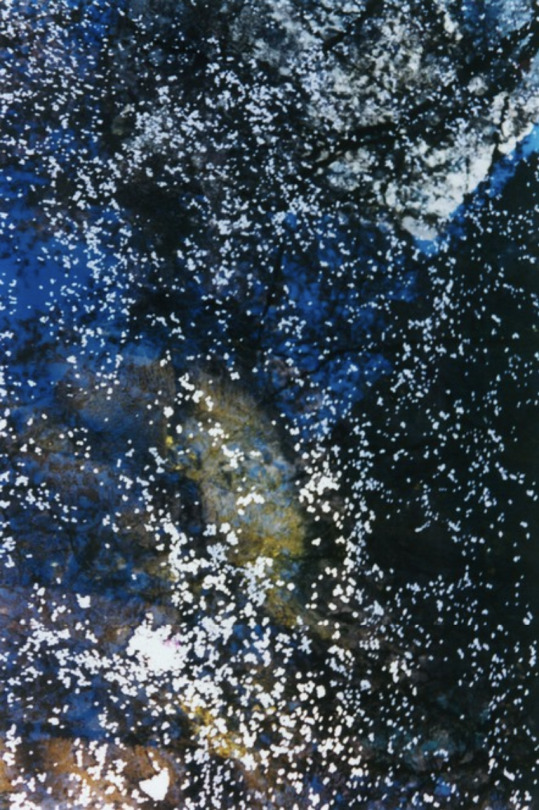
Mika Ninagawa | PLANT A TREE (2011)
3 notes
·
View notes


